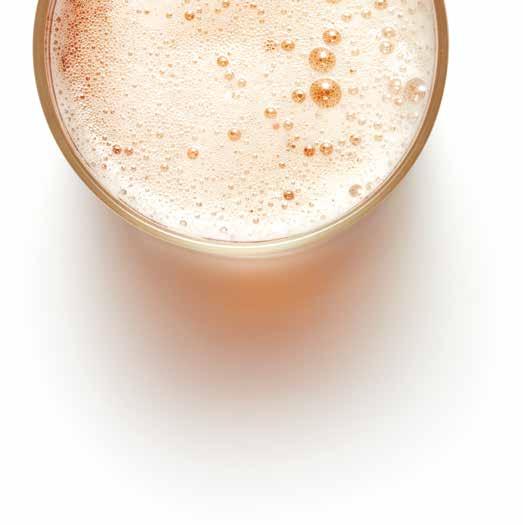
3 minute read
Does Beer Have Secret
HEALTH & BEAUTY HEALTH
Does Beer Have Secret Health Benefits?
WE’LL DRINK TO THAT THOUGHT
By Dylan Roche On St. Patrick’s Day, almost everyone is a little bit Irish. Even people with no Irish ancestry whatsoever can’t help but feel a little bit in touch with the Emerald Isle. And for most people, their way of celebrating is to enjoy a beer. In fact, St. Patrick’s Day is the fourth-biggest drinking holiday in the United States after New Year’s Eve, Christmas, and Independence Day. Each year, Americans consume about 13 million pints of Guinness as a way of paying tribute to Irish tradition. And maybe—just maybe— that beer could be part of the secret behind the luck of the Irish, as research shows that beer has a few underappreciated health benefits. The idea that beer can be healthy is not a new concept. Nearly 20 years ago, the American Journal of the Medical Sciences highlighted the benefits of moderate consumption as part of a healthy lifestyle. While wine usually gets all the credit for being the healthy, enjoy-in-moderation alcoholic beverage of choice, beer has just as many antioxidants as wine—it’s just that the flavonoids in barley and hops are different from those in grapes. Furthermore, beer has protein and B vitamins that wine doesn’t have. So, what is it about your beer that will give a boost to your health? Let’s take a look.
WHAT’S IN BEER? Made from malted barley and hops, which give it that balance of sweetness and bitterness, beer is a fermented brew that can range in its alcohol content anywhere from 3 percent to 40 percent. That’s a pretty big difference, but if you stick with a pale lager, you can usually rest assured your drink has about 5 percent alcohol.
When examining the benefits of alcohol, nearly all experts emphasize that people must be moderate in their consumption, as drinking in excess has negative health effects that will quickly negate any benefits. Moderate alcohol consumption, as defined by the U.S. Department of Health and Human Services and the U.S. Department of Agriculture, is one drink per day for women and two drinks per day for men. In the case of beer, 12 fluid ounces constitutes one drink.
That moderate amount of beer might be good for your heart. A 2018 study published in the health journal Nutrients examined the effects of moderate beer intake on the cardiovascular health of overweight and obese adults who were not showing other risk factors like Type 2 diabetes or hypertension. The study found that moderate intake of beer helps prevent blood lipids from building up plaque on the walls of your arteries, and there were no ill effects in terms of heart health or body weight.
That’s just the beginning of what beer has to offer. Loyola University Chicago Stritch School of Medicine has determined moderate beer drinkers are less likely to develop dementia or cognitive decline, and Harvard Medical School has found that middle-aged men who drink one or two beers a day have a 25 percent less chance of developing Type 2 diabetes.
Beer is also a source of flavonoids and polyphenols, types of antioxidants found in plant foods. Beers that are rich in hops, such as pale lagers, have polyphenols that are good for kidney health and might help prevent kidney stones. Similarly, the flavonoid xanthohumol found in beer protects brain cells from oxidative damage, which might explain its benefits for cognitive health.
It’s important to remember that the amount of antioxidants in beer are still relatively small compared with fruits and vegetables, so you shouldn’t think of drinking as your way of fighting off disease; however, if you enjoy indulging in a beer, it’s good to know there’s at least a little perk to it.
In the long term, excess alcohol consumption can lead to high blood pressure and various cancers. The Academy of Nutrition and Dietetics lists other detriments like elevated triglycerides and liver damage.
So when celebrating St. Patrick’s Day this month, we suggest observing responsible practices as drinking slowly, alternating drinks with water or another nonalcoholic beverage, and consuming food so they aren’t taking in alcohol on an empty stomach. And always rely on a designated driver to return you home safely.










